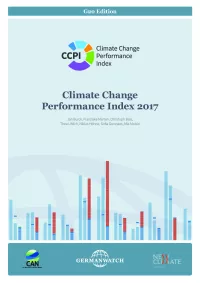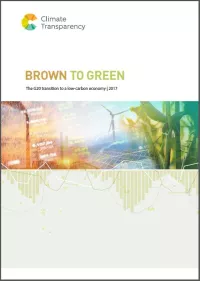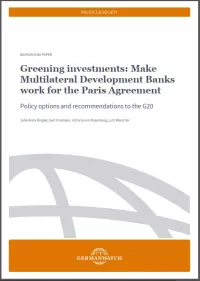G20 countries have stepped up green finance, but their investment in fossil fuels remains so high that the “well below 2 degree” warming limits set in the Paris Agreement will be missed by a wide margin, says this year’s “Brown to Green” Report from Climate Transparency. The "Brown to Green-Report: The G20 transition to a low-carbon economy 2017" is the third annual stocktake of the G20’s climate efforts by the Climate Transparency global partnership, released today ahead of this year’s meeting of G20 leaders in Hamburg. It has been developed by a group of experts from the G20 countries Argentina, Brazil, China, France, Germany, India, Indonesia, Mexico, South Africa and the UK.





